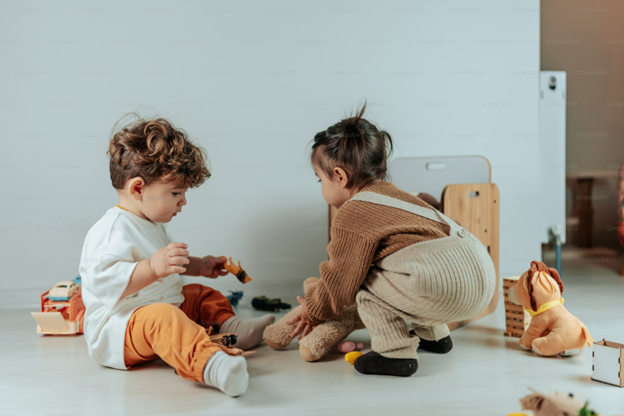Playdates: The Secret Weapon for Raising Well-Rounded, Socially Adept Kids
by Susie Beghin, RECE, Founder of Alpha’s Discovery Kids
In today’s fast-paced, technology-driven world, it’s easy for children to become disconnected from their peers. As a mother and an Early Childhood Education (ECE) professional, I know firsthand how critical social interaction is for a child’s development. Learning through play is one of the most effective ways to foster this interaction. Enter the humble playdate – a powerful tool that can unlock a world of social, emotional, and cognitive benefits for your little one.
Playdates are more than just a chance for kids to have fun; they are essential building blocks for developing crucial social skills. Through these structured interactions, children learn to navigate the complexities of communication, cooperation, and conflict resolution. They practice sharing, compromising, and considering the perspectives of others – all of which contribute to the development of empathy and emotional intelligence.
As children engage in playdates, they learn to express their feelings, needs, and boundaries in a healthy way. This helps them build resilience and the ability to handle social challenges that may arise in the future. Playdates also provide a safe environment for children to experiment with different social roles and behaviors, allowing them to find what works best for them.
Playdates also allow children the opportunity to explore their interests, showcase their talents, and try new activities. This can lead to a significant boost in confidence and self-esteem, which can have a lasting impact on their overall well-being and future success.

When children feel accepted and valued by their peers, they are more likely to develop a positive self-image. Playdates allow children to experience the joy of being accepted for who they are, which can be a powerful antidote to the insecurities that often arise during childhood.
The friendships that blossom during childhood playdates can often last a lifetime. These connections provide a sense of belonging, support, and shared experiences that can enrich a child’s life in countless ways. By fostering these relationships early on, you are setting your child up for a lifetime of meaningful social connections.
Playdates also provide a safe and nurturing environment for children to learn about the complexities of relationships. As they navigate the ups and downs of friendship, they develop the skills necessary to maintain healthy, fulfilling relationships throughout their lives. And they don’t just benefit a child’s social skills – they can also have a positive impact on their cognitive and physical development. Through imaginative play, children can hone their problem-solving abilities, enhance their creativity, and even improve their motor skills.
When children engage in pretend play during playdates, they are exercising their imagination and creativity. This type of play has been shown to boost cognitive flexibility, which is the ability to think outside the box and adapt to new situations. Additionally, physical games and activities during playdates can help children develop their gross and fine motor skills, laying the foundation for future physical development and athletic abilities.
Now that we’ve explored the many benefits of playdates, let’s dive into some practical tips for hosting successful ones:
- Set clear expectations and boundaries: Before the playdate begins, discuss with your child what is expected of them in terms of behavior, sharing, and respecting others.
- Provide a variety of engaging activities: Have a mix of toys, games, and activities available to cater to different interests and age groups.
- Supervise, but don’t hover: Be present to ensure everyone is having fun and staying safe, but allow the children to navigate their interactions independently.
- Encourage communication and problem-solving: If conflicts arise, help the children express their feelings and work together to find a solution.
- Keep it short and sweet: For younger children, aim for playdates that last 1-2 hours, as they may have shorter attention spans and need breaks.
In a world that can sometimes feel increasingly isolated, the power of playdates to nurture social development cannot be overstated. By making them a regular part of your child’s routine, you are investing in their future, helping them to become confident, empathetic, and well-rounded individuals. So, embrace the playdate and watch your child’s social skills soar to new heights.
Follow Susie Beghin on Instagram or YouTube for more early childhood tips and advice.

